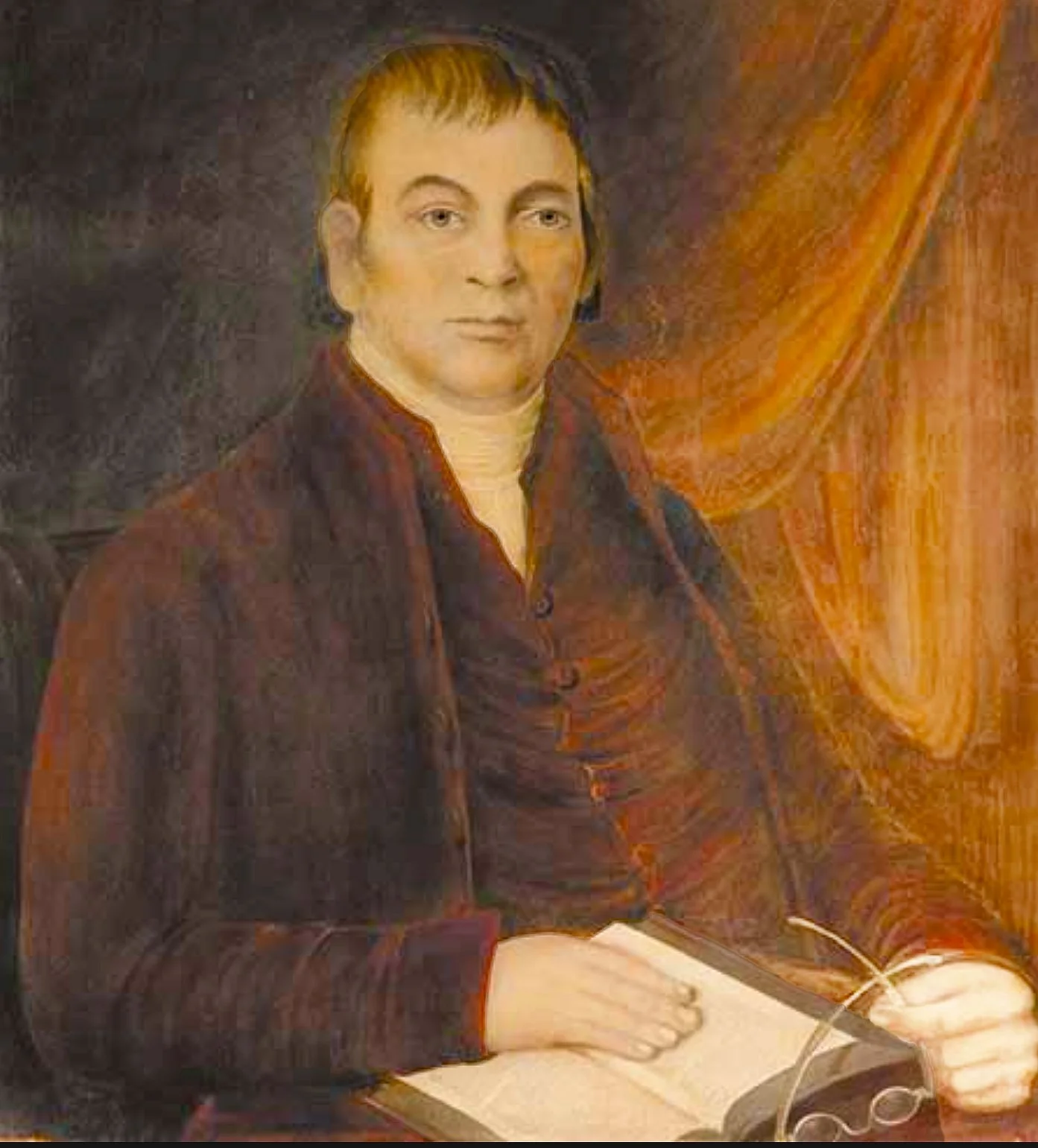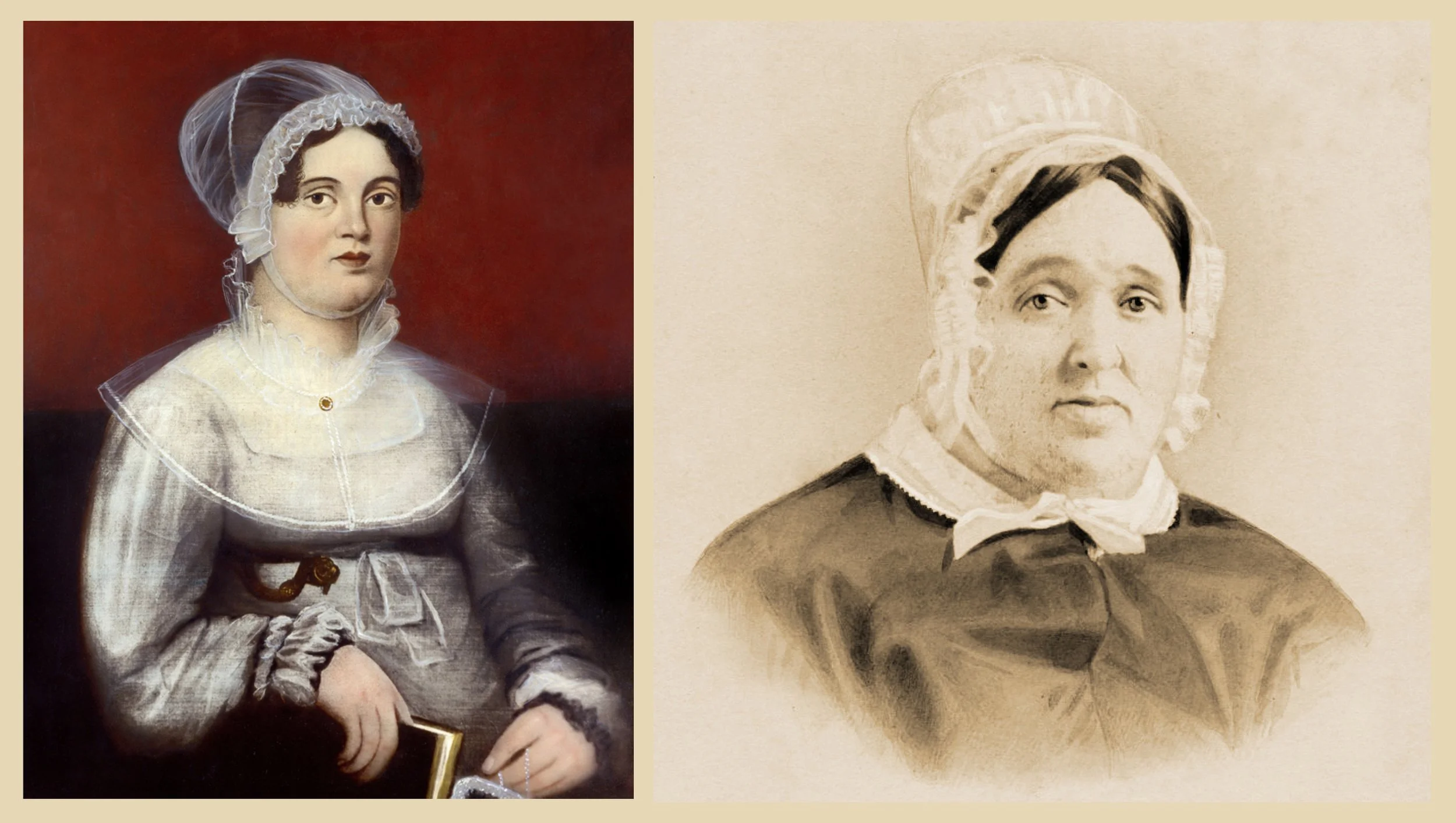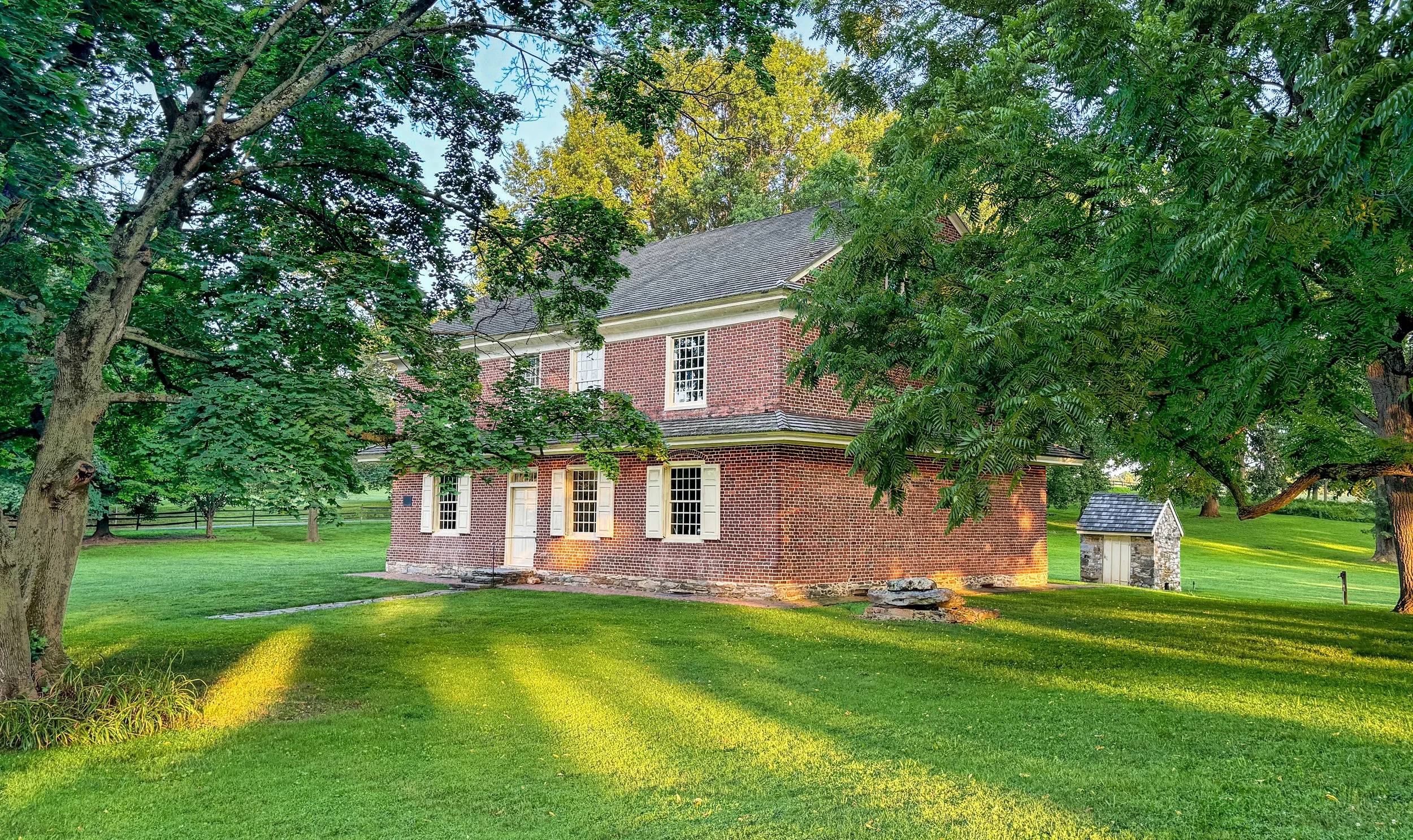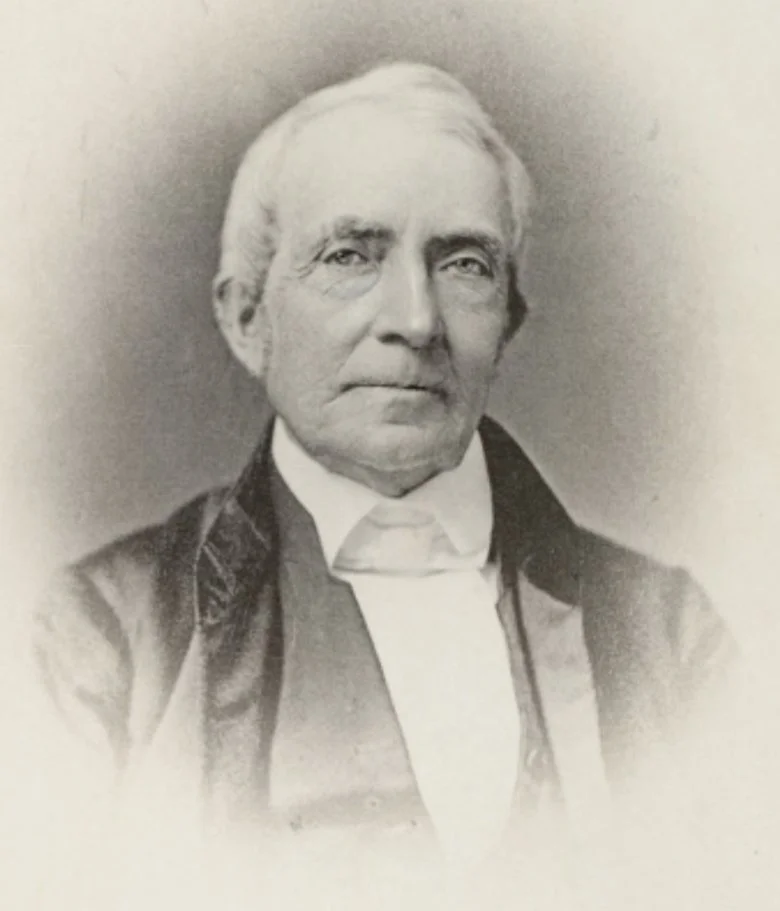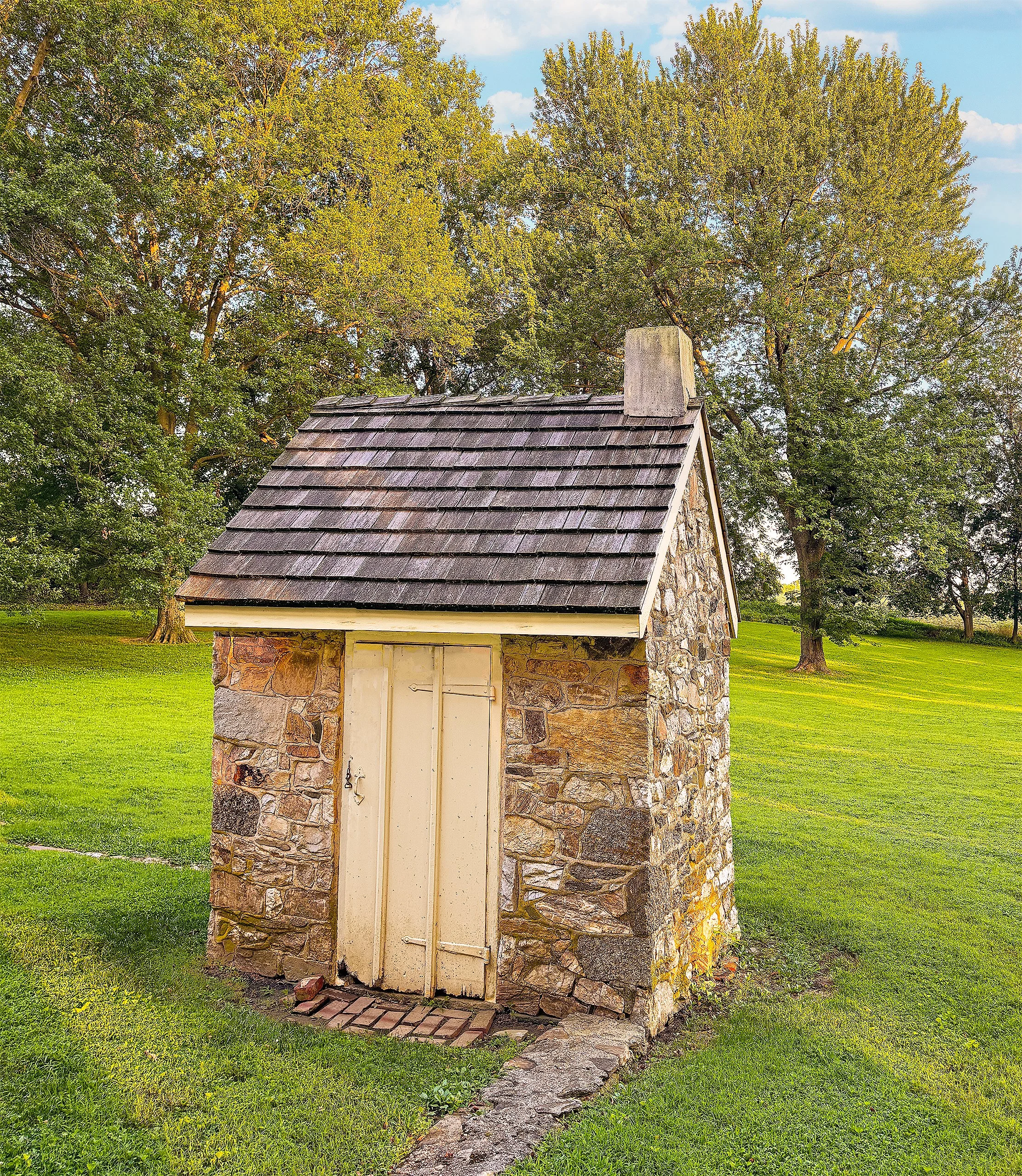Historic Quaker Houses of Chester County, PA
Primitive Hall
The Ancestral Home of the Pennock Family
Built in 1738 by Joseph and Mary Pennock
West Grove, PA
Above: Primitive Hall, built in 1738 by Joseph and Mary Pennock. Image source: Lee J. Stoltzfus.
Joseph Pennock (1677–1771) was a Quaker immigrant from Ireland who became a prominent leader of his Chester County community. He inherited large tracts of land in Pennsylvania from both his father and grandfather. Pennock first settled in Philadelphia and married Mary Levis in 1705. In 1710, the couple moved to a 1,250-acre property in Chester County, where they established the homestead that become Primitive Hall.
Pennock served as a legislator in the Pennsylvania Assembly from 1716 to 1744. He also was justice of the peace and a farmer. He became a trustee of New Garden Friends Meeting, and helped to secure land for the London Grove Meeting House. He was known for his hospitality, and at times hosted Native American visitors at Primitive Hall. His obituary in The Pennsylvania Gazette explains, “He served his country with ability and integrity. He had a natural politeness and sweetness of manners that irresistibly attracted respect and love from all.”
Above: Side view of Primitive Hall, with attached bake oven. Image source: Lee J. Stoltzfus
Above: Image source: Early Domestic Architecture of Pennsylvania, Eleanor Raymond, Internet Archive
Above: Image source: The Decorative Arts Trust
Primitive Hall has an outstanding collection of antique furniture original to this house or to the Pennock family. Some pieces of furniture in this house museum have never left the home, while other pieces came back to the house through Pennock descendants. Image source: PrimitiveHall.org
Joseph and Mary Pennock of Primitive Hall:
Progenitors of a Prominent Quaker Family
of Business Leaders and Social Reformers:
Above: Primitive Hall Interior. Image source: PrimitiveHall.org
Quaker Ironmaster Isaac Pennock
(Grandson of Joseph and Mary Pennock)
Founder of an Industrial Dynasty
That Became Lukens Steel Company:
Above: Quaker ironmaster Isaac Pennock.
Image source: The National Iron and Steel Heritage Museum
Quaker ironmaster Isaac Pennock (1767–1824) was the founder of the business that became Lukens Steel Company in Coatesville. He was a grandson of Joseph and Mary Pennock who built Primitive Hall. In 1793, he founded the Federal Slitting Mill on the Brandywine River to produce blacksmith iron and other products.
In 1810, he built the Brandywine Iron Works and Nail Factory. His daughter Rebecca Lukens later expanded it into the Lukens Steel Company. The firm became a leader in plate steel production. Isaac Pennock’s values and vision built an industrial legacy that shaped Coatesville and advanced American steel manufacturing.
Quaker Businesswoman Rebecca Pennock Lukens
(Daughter of Isaac Pennock)
Matriarch of Lukens Steel Company
America’s First Female CEO of an Industrial Company:
Above: Quaker businesswoman Rebecca Lukens. Matriarch of Lukens Steel Company in Coatesville, PA. America’s first woman industrialist. Images source: The National Iron and Steel Heritage Museum
Quaker businesswoman Rebecca Pennock Lukens owned and operated the iron and steel mill that became the Lukens Steel Company in Coatesville, Pennsylvania. In 1994, Fortune magazine recognized her as “America’s first female CEO of an industrial company” and honored her with induction into its National Business Hall of Fame.
In 1825 she assumed control of her family’s Brandywine Iron Works in Coatesville after her husband’s death. She expanded production and specialized in boilerplate for steamboats and locomotives. Her company became the premier producer of boilerplate in the U. S. In 1994 the Pennsylvania legislature declare her the “America’s first woman industrialist.”
Rebecca Lukens had been guided by Quaker principles of honesty, fairness, and community responsibility. In 1995, Lukens Steel ranked among the nation’s three largest plate steel producers. The company was the leading U.S. manufacturer of alloy plate. It placed fourth in profitability out of 24 publicly traded steel corporations.
Primitive Hall in Morning Light. Image source: Lee J. Stoltzfus
Abraham L. Pennock
Wealthy Quaker Activist for Social Reform:
(Another Grandson of Joseph and Mary Pennock)
Above: Abraham L. Pennock
Image source: “Portraits of American Abolitionists”, MHS.org
Quaker businessman Abraham L. Pennock (1768-1868) used his wealth to fund anti-slavery publications and social reform efforts.
Social Reform Activism of Abraham L. Pennock
Co-edited The Pennsylvania Freeman, a leading anti-slavery newspaper.
Co-founded and co-edited the Non-Slaveholder periodical.
Refused to publish ads for products made with enslaved labor.
Supported and assisted the Underground Railroad in Pennsylvania.
Opposed the Fugitive Slave Act of 1850 and spoke publicly against it.
Advocated for immediate, not gradual, emancipation of enslaved people.
A founding member of the Free Produce Association, encouraging the boycott of slave-made goods.
Opposed racial segregation in schools and public spaces.
Voted in elections for the Free Soil Society, opposing the expansion of slavery.
Outspoken advocate for women’s right to vote.
The Smokehouse at Primitive Hall
A Rare Survivor:
Above: Smokehouse in morning light. The local bedrock here, and the building stone, is Glenarm Wissahickon Schist. Image source: Lee J. Stoltzfus
Restoration of Primitive Hall
By Stewart Huston
President of Lukens Steel, and Pennock Descendant:
Above: Stewart Huston.
Image source: The Stewart Huston Charitable Trust
Stewart Huston (1895–1971) was the guiding light behind the preservation of his family’s Primitive Hall. He was president of Lukens Steel Company and was a descendant of Joseph and Mary Pennock. He purchased Primitive Hall in 1920, when he was 22 years old, and spent the next decade restoring the house’s exterior. He also began to locate and return original Pennock furniture to the property. In 1960 he transferred the house and property to the Primitive Hall Foundation. Huston was the last Pennock descendant to live in the house. Interior restoration began in 1973. Today Primitive Hall is a landmark house museum.







